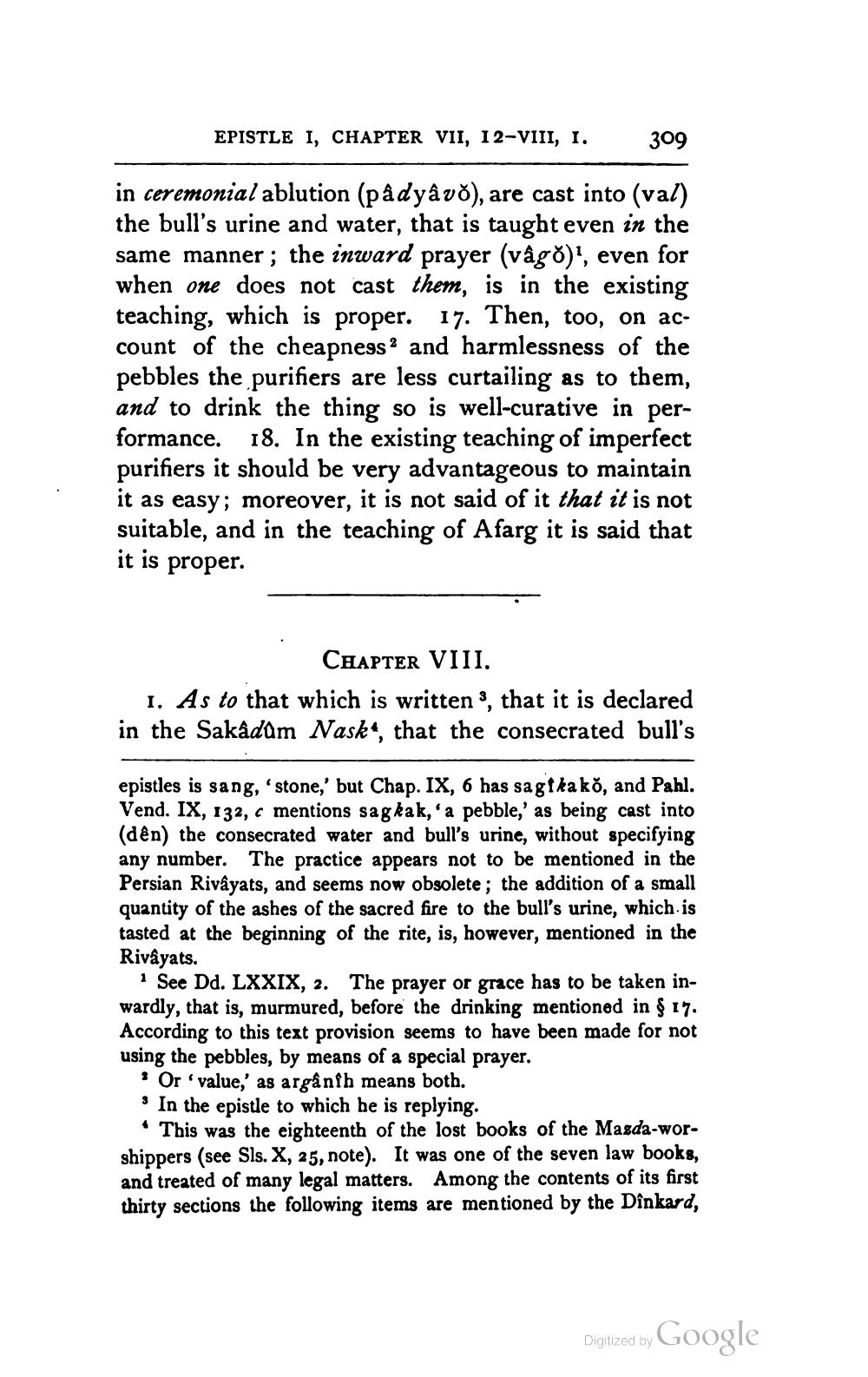________________
EPISTLE I, CHAPTER VII, 12-VIII, 1.
309
in ceremonial ablution (pådyâvo), are cast into (val) the bull's urine and water, that is taught even in the same manner; the inward prayer (vâgo)', even for when one does not cast them, is in the existing teaching, which is proper. 17. Then, too, on account of the cheapness and harmlessness of the pebbles the purifiers are less curtailing as to them, and to drink the thing so is well-curative in performance. 18. In the existing teaching of imperfect purifiers it should be very advantageous to maintain it as easy; moreover, it is not said of it that it is not suitable, and in the teaching of Afarg it is said that it is proper.
CHAPTER VIII. 1. As to that which is written, that it is declared in the Sakâdam Nask“, that the consecrated bull's
epistles is sang, stone,' but Chap. IX, 6 has sagtkako, and Pahl. Vend. IX, 132,c mentions sag kak, a pebble,' as being cast into (dên) the consecrated water and bull's urine, without specifying any number. The practice appears not to be mentioned in the Persian Rivayats, and seems now obsolete ; the addition of a small quantity of the ashes of the sacred fire to the bull's urine, which is tasted at the beginning of the rite, is, however, mentioned in the Rivayats.
See Dd. LXXIX, 2. The prayer or grace has to be taken inwardly, that is, murmured, before the drinking mentioned in $17. According to this text provision seems to have been made for not using the pebbles, by means of a special prayer.
• Or value,' as argânih means both. * In the epistle to which he is replying.
• This was the eighteenth of the lost books of the Masda-worshippers (see Sls. X, 25, note). It was one of the seven law books, and treated of many legal matters. Among the contents of its first thirty sections the following items are mentioned by the Dînkard,
Digitized by Google




